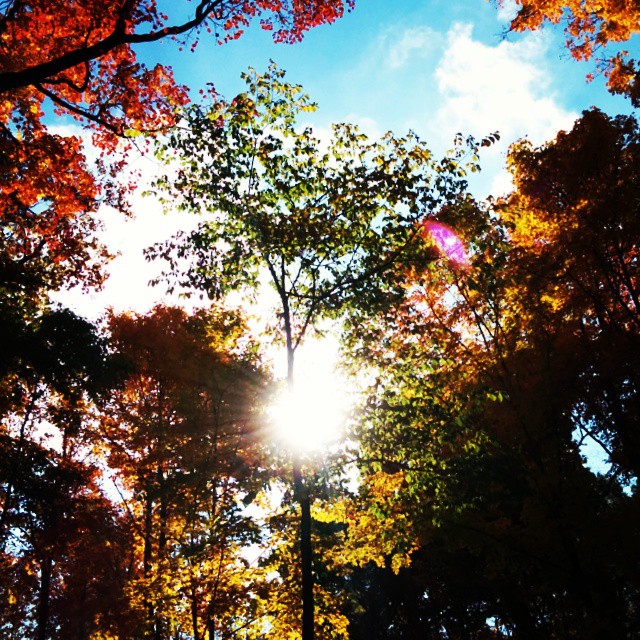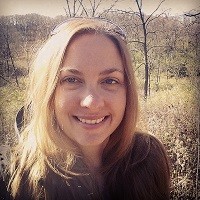One warm summer day long ago, I fell in love with a man because of a songbird.
The bird’s name is now faint in my memories, but in our early months together we listened to a recording of it at a museum. It was the last known male, calling out to a mate that would never arrive. The species became extinct soon after being recorded.
As we listened, I turned in sorrow to the man, who would become my husband. We were both crying. It was this hidden part of him I fell in love with, grieving for a single bird in a place unknown. I took his hand as we walked away, finding silent reassurance in our fingers intertwining.
We never spoke of it again.
Years later, I remembered that bird as I was signing divorce papers and began mourning the loss of my own mate.
Perhaps a birdsong might not move some deeply, but I have worked in the environmental field for nearly two decades and nature has long influenced my life. I don’t find this career easy, though. I often struggle to find sense in the violence we inflict upon the world around us.
It seems simple, really.
Destroying the environment is like setting fire to our house while expecting we won’t get burned.
Conversely, caring for the environment ensures our house never catches flame. Scientists and students alike understand this: a species that outstrips its resources dies too. Since everything on Earth shares the same space, stewardship is fundamentally essential for life.
But that’s not what happens.
Does one bird species have value when there are millions of other birds in the world?
If nature is a symphony, you can’t remove one note at a time and expect the song to remain. The complicated melody of existence functions in a specific way, and each bird species has an intrinsic role to sing within it. So, do whales, mosquitoes and people.
Every loss changes the melody. When it falls silent, will it be too late?
In this era, the extinction of species is the manifestation of a disease perpetuated by human choices. It’s the disease of myopia, where our own experiences are paramount and arrogance meets ignorance. I am sometimes guilty of this myself. But if we only choose to see one tree, that lone bird will sing its final song alone in the proverbial forest beyond.
Many socioeconomic factors also shape our interactions with the environment, so this isn’t a simple disease.
People work tirelessly to fix problems across the globe. Yet, some solutions still evade our grasp. Perhaps extinction is a plot twist in a vast story far beyond our comprehension. Will our stubborn failure to live within the boundaries of our world’s resources close that book for good?
What is the root of that disease? Why destroy the very thing that gives us life?
After my divorce, it took time to pick up the shattered pieces and begin again.
I thought about love and destruction often in those dark months. Love had entered my life through a birdsong, but eventually my husband and I could not hear each other. It devastated the world we had built together until, like that last lonely bird, only silence remained.
Perhaps myopia arises when we call out to love and find no answer.
Cultural norms often teach us to devalue our own worth, and those messages reach deep within our souls. In my journey, healing began only after I finally understood how deeply I had failed to love myself. That clarity changed my life for the better, and I hope his too.
Learning to love ourselves is hard.
But it’s a nurturing process that reveals love in the world around us, too. As we grow kinder towards ourselves, you see your own experiences mirrored in the living fabric of the Earth, in the faces of other people. Altering the delicate symphony of life becomes antithetical. We are vital notes in an extraordinary melody, and harming the environment destroys us too.
If seeing value in ourselves begets understanding intrinsic value in all life, self-love may be worth deeper consideration as we fight against destructive forces often beyond our control.
Humans are cognitively able to make choices that support life-affirming consequences.
What would happen to the world if we change how we treat ourselves?
Perhaps our individual lives are like pebbles thrown into still waters, each rippling beautiful circles outwards towards a shared Earth that vibrates with the energy of love. Fixing the other problems might be easier from there.
There are many different paths to self-love, from meditation to therapy to movement.
Find what works for you and take the first step. As a courageous example of love in action, you will inspire others to begin their own journeys and find their voices in this beautiful symphony of life.
The bird I once listened to no longer exists, just as my marriage is long over.
But other birds remain, singing sweetly to each other as the journey continues one step at a time. It fills me with hope.
Let’s get started.
~
Relephant Read:
The Laws of Breaking Up & Getting Over it.
~
Author: Aimee Collins
Editor: Ashleigh Hitchcock
Photo: courtesy of author, flickr







Read 0 comments and reply